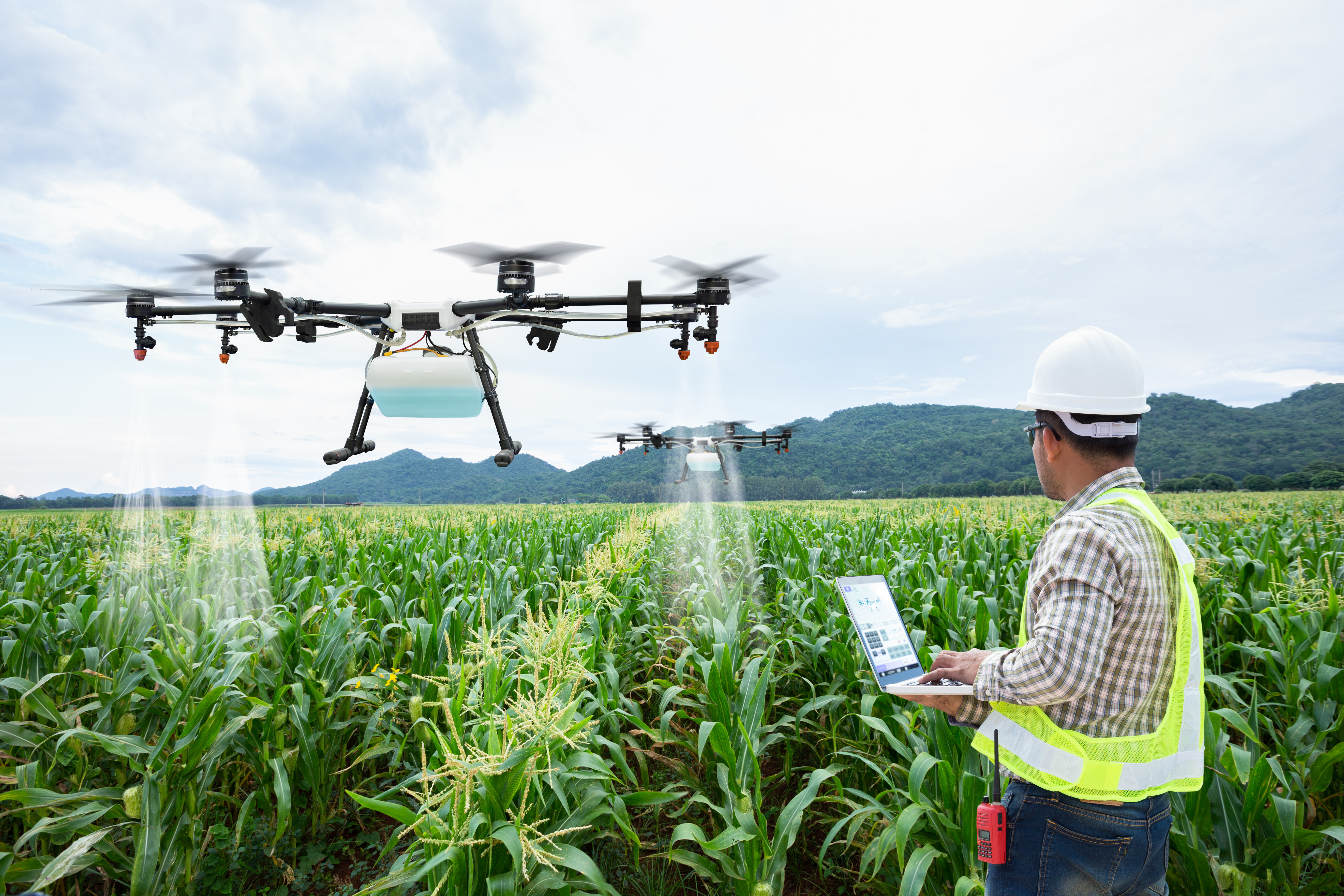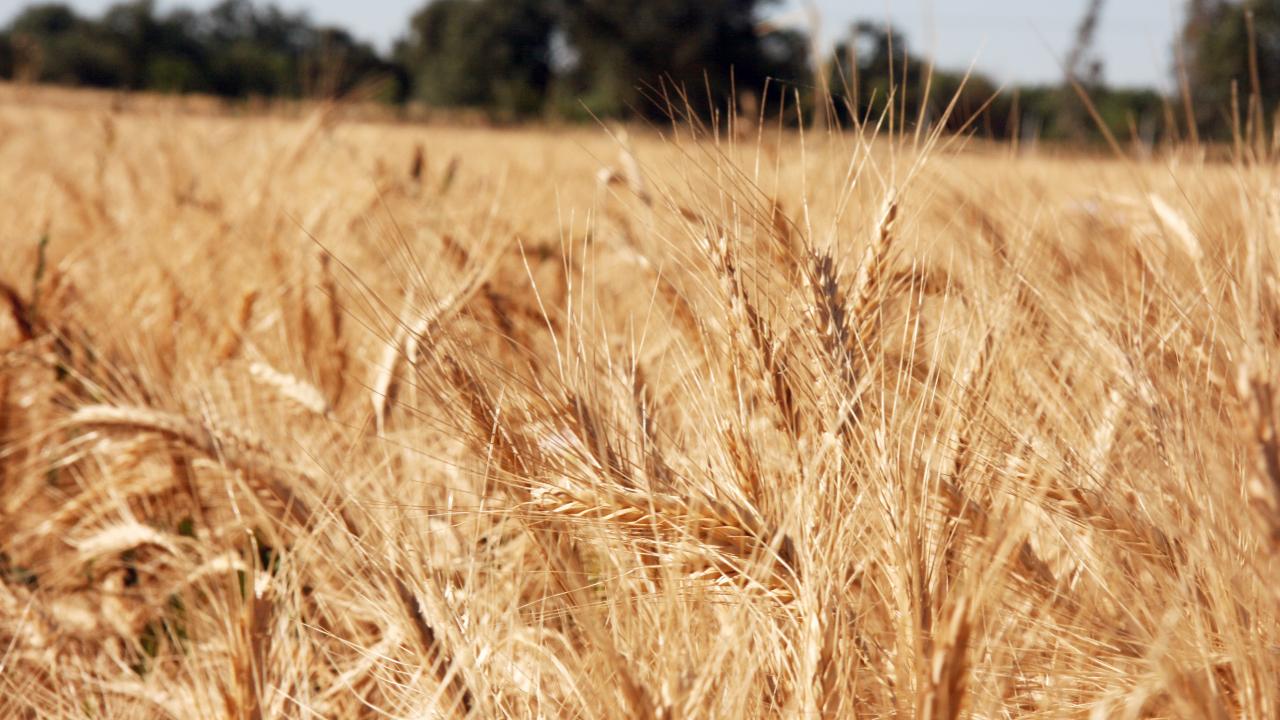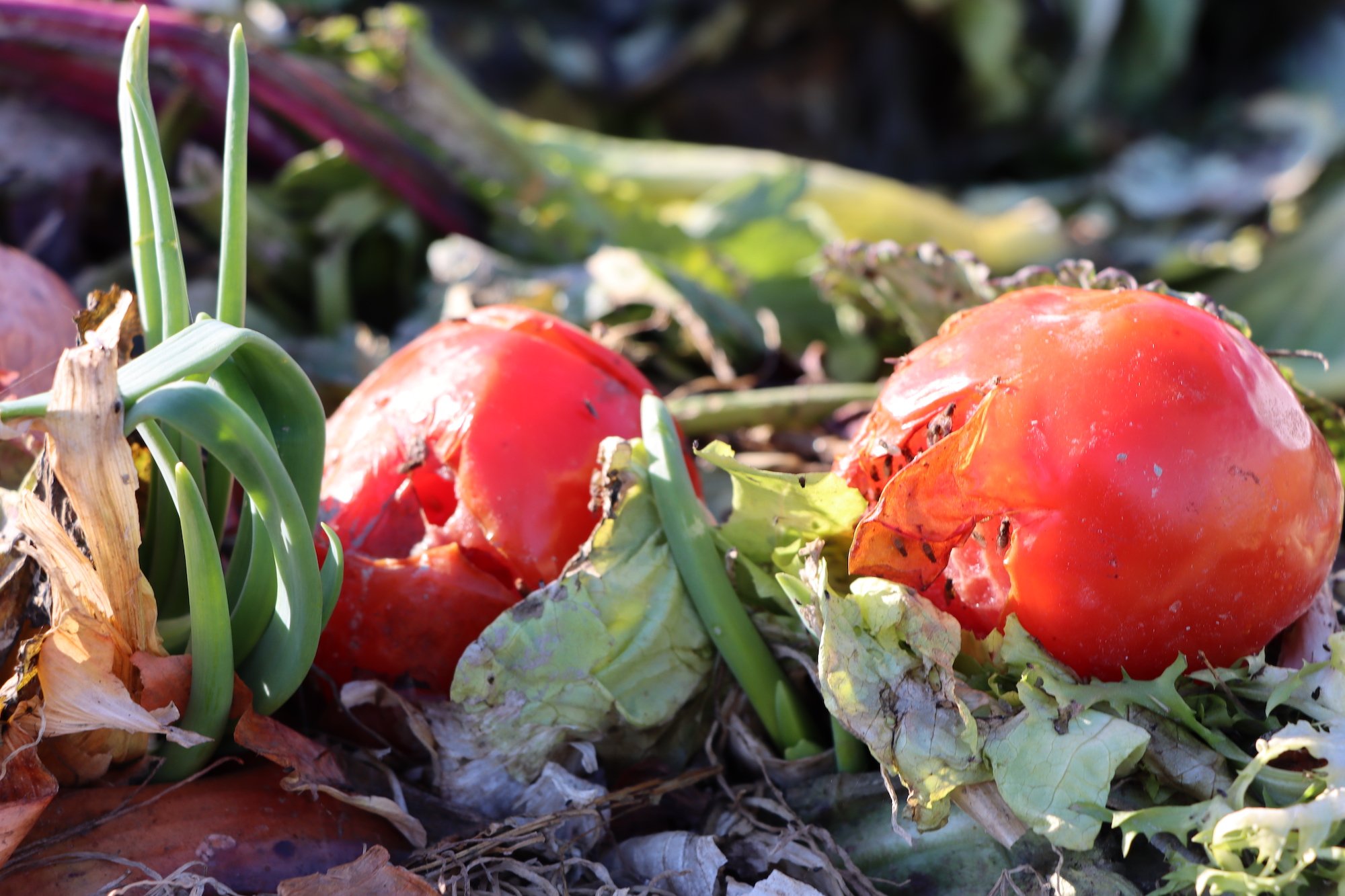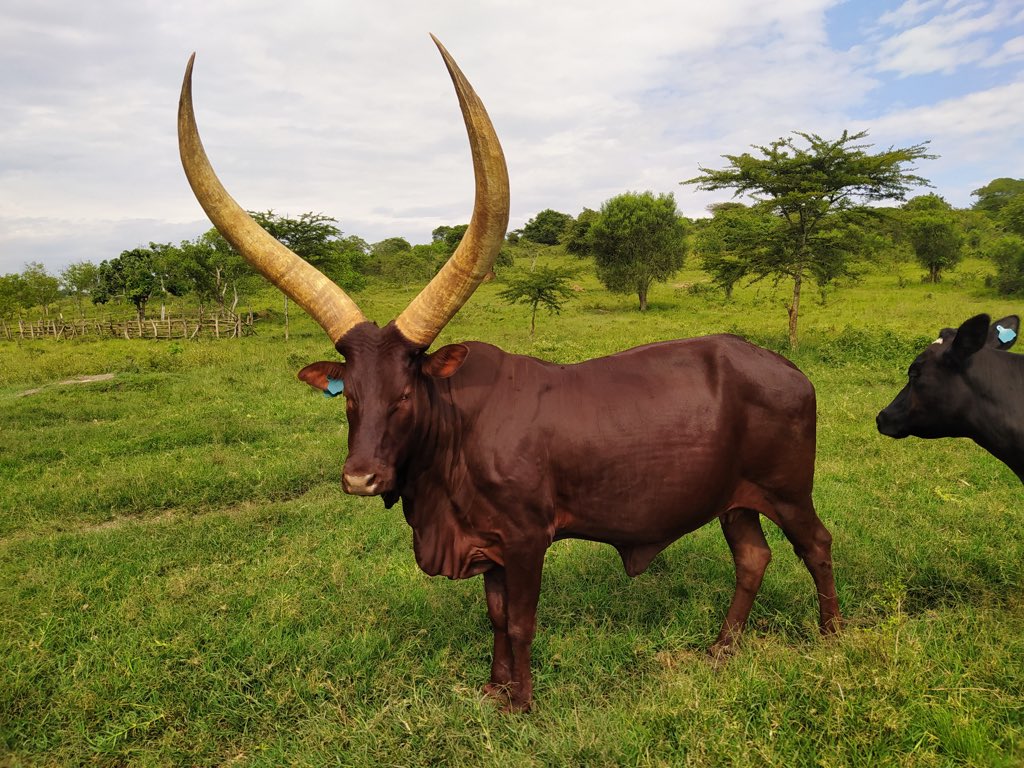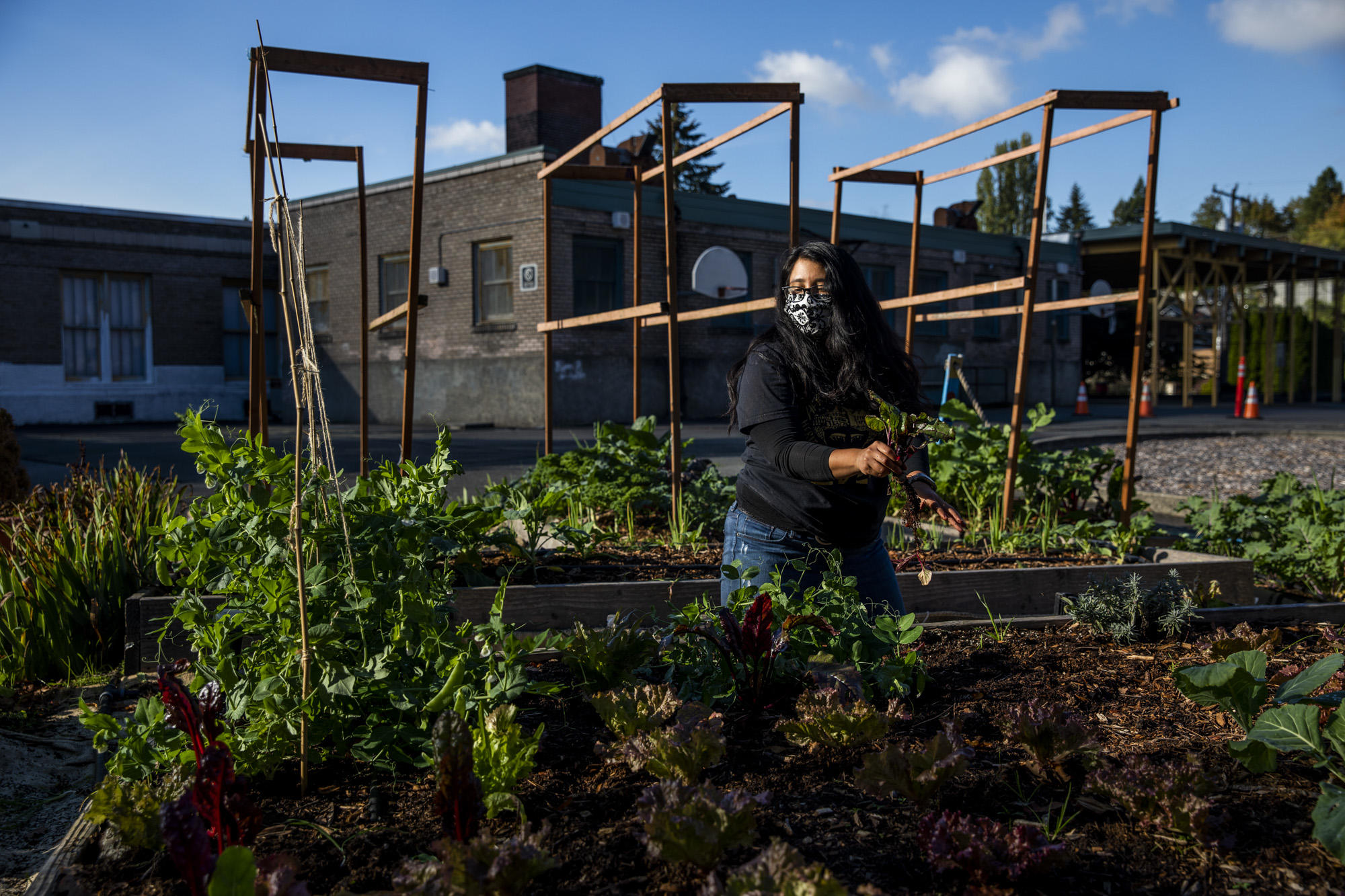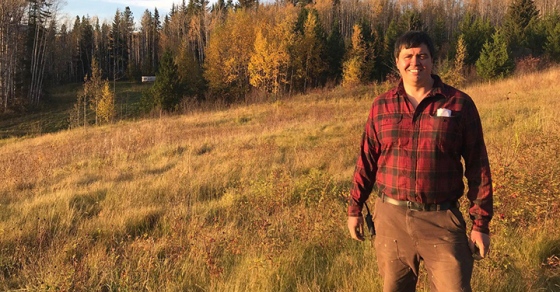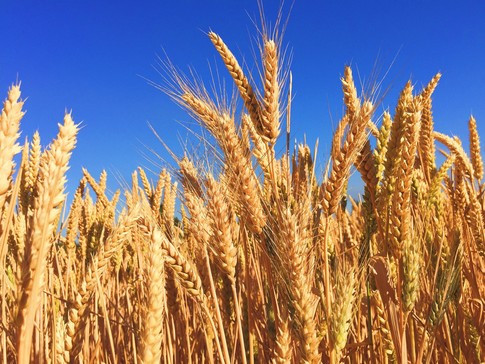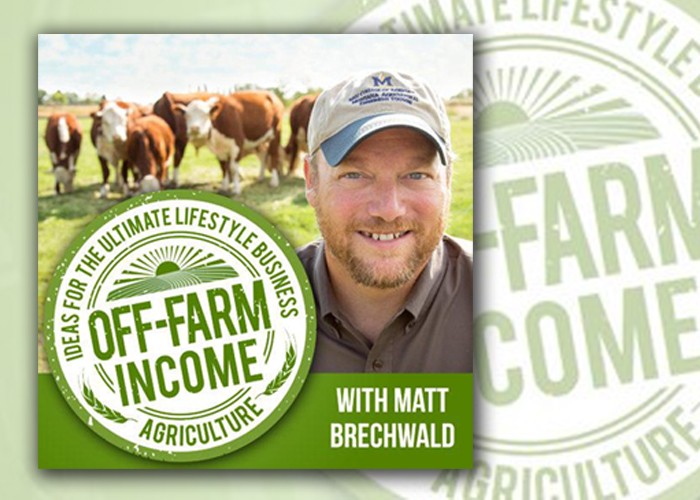 John LaRose Jr.
John LaRose Jr.
Topics: Agriculture Global, Economics, Drones UAV, Sustainability, Research, Ag Tech, Education,
Robots in Agriculture: Council for Agricultural Science and Technology | Grainnet
In a new issue paper published on Nov. 16, the Council for Agricultural Science and Technology (CAST) outlined opportunities provided by ground and aerial…
-
(0)
-
Bookmark
- Comments (0)
 John LaRose Jr.
John LaRose Jr.
Topics: Soil Health, Education U.S. West, Food/Nutrition, Food Waste, Sustainability, Ag Global Specialty Food, World Hunger, World Population,
UC Davis engineers fight food insecurity through sustainable agriculture
By Noah Pflueger-Peters and Constanze Ditterich Associate professor Isaya Kisekka (Lucy Knowles/UC Davis)With the dawn of agriculture, humans became dependent on food production systems that exploit nature’s limited resources of land, water and air. As the world’s population is expected to reach 9–10 billion by 2050 according to the U.N., the world must double food production to meet demand while using and reusing the resources we have left in a sustainable manner. Ruihong Zhang and Isaya Kisekka at UC Davis are rising to meet the challenge by finding new ways to sustainably produce food, while conserving resources by using microbes to produce new sources of protein and managing and irrigating crops with pinpoint precision. “We really need to think hard about how to be climate-smart and optimize our resources,” said Kisekka. Harnessing the power of microbes Zhang, professor of biological and agricultural engineering, says one way to produce food more sustainably is by tapping into the huge potential of microbes like fungi and algae. Growing livestock is an expensive and time-consuming process due to the land, resources and time that are needed, leading to a huge carbon footprint. By contrast, microbes such as fungi and algae can grow in less than a week in any climate and require a small fraction of the space and resources. “We want society to start paying more attention to microbes as alternative food sources,” she said. “There are a lot of benefits environmentally and economically, especially for populations who live in areas that have very limited land for growing crops.” Eating fungi and algae is nothing new, as mushrooms and seaweed are staples of diets around the world. Zhang plans to innovate by harvesting these microbes using agricultural byproducts such as almond hulls and carrot and tomato pomace, the material that’s left over after pressing for juice or oil. This method improves the sustainability of the entire food production system, as what was once waste gets broken down i...
-
(0)
-
Bookmark
- Comments (0)
 John LaRose Jr.
John LaRose Jr.
Topics: Wheat, Education U.S. West, Conservation/Tillage, Food/Nutrition, Sustainability, Crop Diseases, Research, Ag Innovation, Agronomy,
UC Davis receives grant to increase dietary fiber in wheat
Diets lacking fiber are linked to health concerns such as colon cancer and heart diseases, but Americans only consume 30 percent of the recommended daily amount of fiber. One way to increase fiber consumption is to produce wheat varieties that contain more fiber. The University of California, Davis, has a received a nearly $500,000 Seeding Solutions grant from the Foundation for Food & Agriculture Research (FFAR) to increase the dietary fiber content in wheat products. Bay State Milling, California Wheat Commission and Limagrain Cereal Seeds provided matching funds for a total investment of $959,997. “A small increase in fiber content in refined flour products can translate into a significant boost in the public’s consumption of dietary fiber.” said FFAR Executive Director Sally Rockey. “By developing wholesome food with more fiber, and the same great taste, we can lower the incidence of preventable, diet-related diseases.” Refined wheat flour, commonly known as all-purpose flour, is more popular than whole wheat flour in most industrialized countries, but lower in fiber. To increase fiber in refined flour, UC Davis researchers, led by Jorge Dubcovsky, are investigating ways to increase wheat dietary fiber using modified starch synthesis enzymes. The first generation of varieties with increased dietary fiber in the plant’s starch showed reduced grain yield, making the grain more costly for consumers. Dubcovsky’s team is developing a second generation of wheat varieties with high fiber in the refined flour but with a higher grain yield. Using genetic tools and molecular markers the researchers are identifying genes responsible for wheat yield, quality and fiber content. With this information, the researchers are testing combinations of wheat genetics, environmental conditions and growing practices that encourage high-yield and high-fiber crops. “Most of the refined flour is starch, so the trick is to hide the fiber in the starch,” said Dubcovsky. “We increased the relative amount of ‘r...
-
(0)
-
Bookmark
- Comments (0)
11/20/2020 SOURCE: www.nationalobserver.com
“We actually do have a pretty solid understanding of where that food loss and waste is across the supply chain,” said Lori Nikkel, CEO of Second Harvest.
Each year, fields of Canadian produce are plowed under due to cancelled orders. But that may be about to change.
Ottawa wants to hear your ideas on how to tackle food waste
-
(0)
-
Bookmark
- Comments. (0)
 John LaRose Jr.
John LaRose Jr.
Topics: Livestock/Meat, Dairy, Lamb/Sheep, Sustainability, Beef Cattle, Goats, Research, Genes /Genetics, Ag Africa, Weather,
Doctor breeds better livestock for Africa - Alliance for Science
When Dr. Baker Bakashaba graduated from Uganda’s Makerere University Medical School in 2014, a close family friend gave him the gift of a cow. The generous gift rekindled Bakashaba’s desire to engage in livestock farming at his rural home in Western Uganda. Motivated by the kind gesture and his family’s farming background, he founded Novine […]
-
(0)
-
Bookmark
- Comments (0)
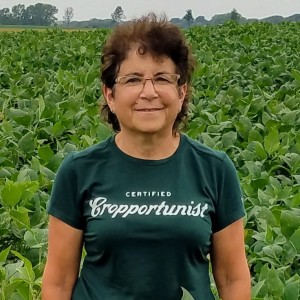 Nancy Kavazanjian
Nancy Kavazanjian
Topics: Agriculture US, Young Farmers, Economics, Sustainability,
Much to ponder in this piece.
The racist roots of Joel Salatin's agrarian dream
His go-it-alone message made him a star of the food movement. Then a young Black farmer dug into what he was really saying.
-
(0)
-
Bookmark
- Comments (0)
 Nancy Kavazanjian
Nancy Kavazanjian
Topics: Soil Health, Agriculture US, Sustainability, Fertilizer, Environment,
-
(0)
-
Bookmark
- Comments (0)
 John LaRose Jr.
John LaRose Jr.
Topics: Agriculture US, Organic, Vegetables, Gardening, Sustainability, Urban Farming, Coronavirus/COVID,
CHOP made urban gardening radical. The pandemic made it essential
A movement to use land for productive gardening will help communities support themselves during and after the pandemic.
-
(0)
-
Bookmark
- Comments (0)
 John LaRose Jr.
John LaRose Jr.
Topics: Soil Health, Cover Crops, Vegetables, Agriculture Global, Sustainability, World Hunger, World Population, Regenerative Agriculture, Coronavirus/COVID,
How one northern B.C. Indigenous farmer is improving food security
Jacob Beaton wouldn’t be a farmer without lettuce. Lots of lettuce. It was among the first vegetables he grew using agro-ecological techniques on the small farm near Kitwanga, between Smithers . . .
-
(0)
-
Bookmark
- Comments (0)
11/18/2020 SOURCE: www.weforum.org
A coherent, traceable supply network is key to ensuring food is safe, nutritious and sustainable. Here's what's needed.
How a smarter network could revolutionise our food system
-
(0)
-
Bookmark
- Comments. (0)


